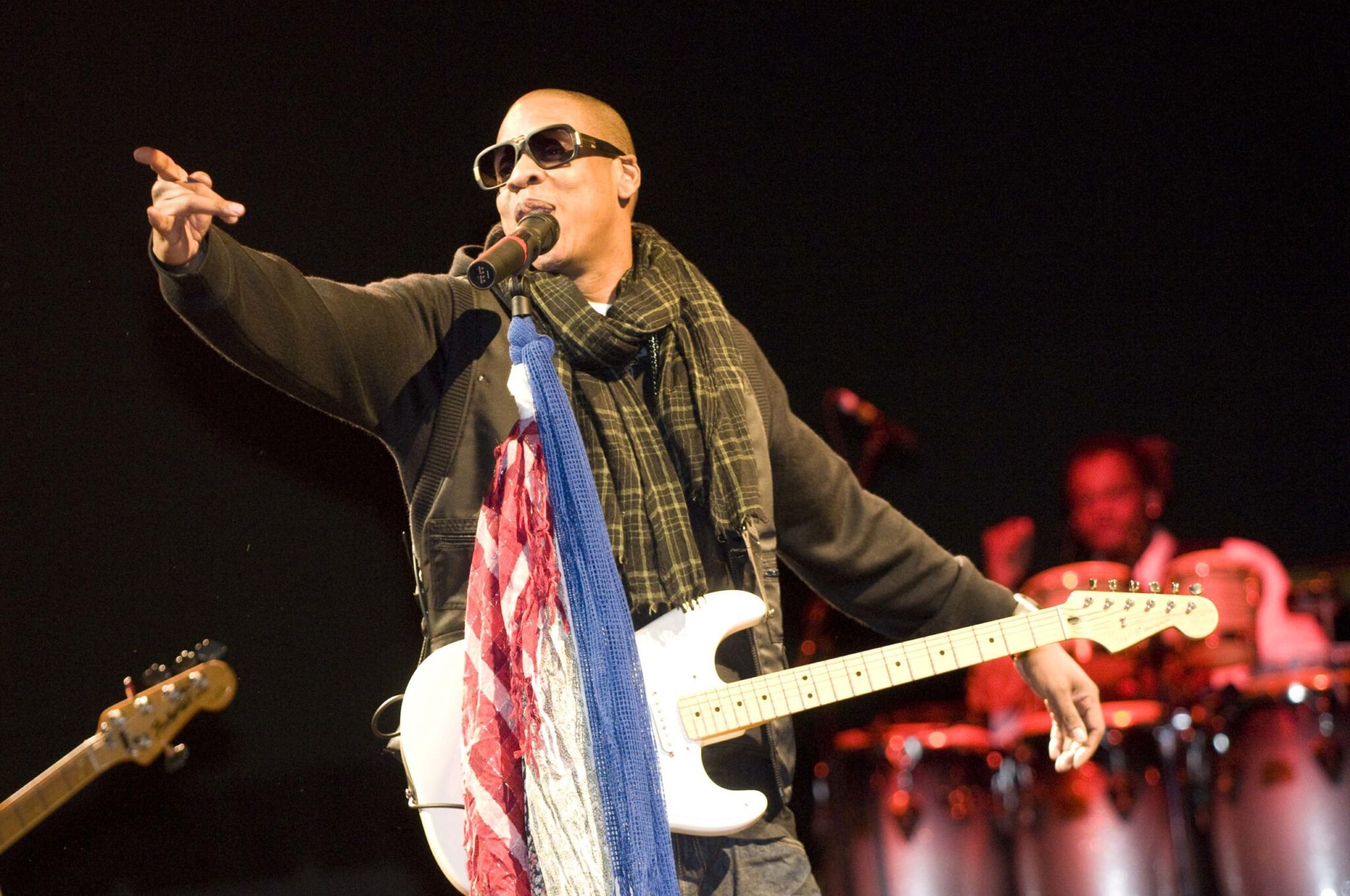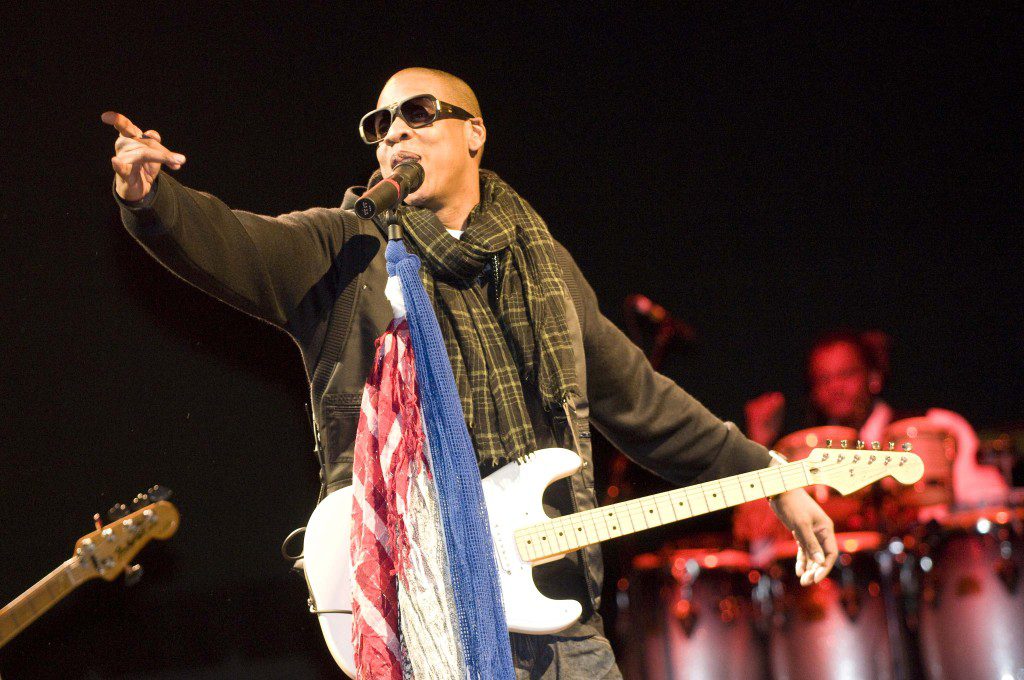
In 2005, Ben Folds recorded an indie-rock cover of Dr. Dre’s 1992 gangsta rap song “Bitches Ain’t Shit.” Although the recording was a half-joke, Folds’ introspective take on the gruff, expletive-riddled track was such a massive success that he eventually got tired of playing the song and retired it from his set list, ceremonially performing “Bitches”‘s swan song at Glastonbury Festival in 2008. Interestingly enough, that very same year, Jay Z had originally been turned away by the festival–Glastonbury, its representatives claimed, focused on guitar-based music, and didn’t include hip hop acts in their line up–but wound up performing due to overwhelming demand. Unaccustomed to have festivals turn him down, the rapper retaliated. He began his set with a farcical Oasis cover, holding an electric guitar in his hands, fumbling chords, and butchering the lyrics to “Wonderwall.” When the song was finished, he looked out into the audience with a spectacular poker face. Glastonbury’s booking agents may have felt Jay Z was the wrong performer for the festival; his audience disagreed. An oceanically huge crowd went nuts at the end of the “Oasis” spoof, and screamed even louder as he launched into “99 Problems.”
All of which gets me to thinking about cross-genre covers. Both Glastonbury songs–a hip hop song played as a rock song, and a rock song played as a hip hop song–garnered a massive and positive response and poked fun–to varying extent–at the genre they emulated. They were novelties; that is, when the songs changed genre, they assumed bizarre new meaning, sometimes for the better, sometimes for the worse, and sometimes just for the more hilarious. Without further ado, here are five more bizarre cross-genre covers of songs you’ve heard before, and now may never hear the same way again.
1. “99 Problems” by Hugo: An artist who is himself a cross-genre mash-up of sorts, Hugo Chakrabongse Levy is a half-Thai, half-British bluegrass musician who covered Jay Z’s classic song on his 2011 debut album Old Tyme Religion. Hugo’s vocals on this song sound live, with a very slight Memphis-style slapback-like sound to them, and are accompanied by a strong bass line and knee-slapping percussion and banjo. It works, channeling a slightly more sinister aspect of the song as opposed to Jay Z’s liberated, powerful original.
2. “My Humps” by Alanis Morissette: This song is simply bizarre. The original is bizarre, and the cover is bizarre in an entirely different way. Sorrowful and pretty, closely backed by a piano, Morissette’s clear and unironic enunciation of the lyrics in Black Eyed Peas’ 2005 release makes the song hilarious, even though the vocals and piano melody are quite lovely.
3. “Enter Sandman” by Iron Horse: Here’s my theory as to why bluegrass covers both metal and hip hop so well: though they’re all very different genres instrumentally, all three lend themselves to minor mode and dark thematic matter. Since 2001, Iron Horse has released eleven whole albums full of tribute material, several of which covered Black Sabbath, Led Zeppelin, Van Halen, and, as here, Metallica.
4. “Believe” by Dollar Store: As much as I love Cher, “Believe” is not my favorite–all I got out of the 1998 original was that someone in the studio was really excited about using a vocoder that day. What the track really needed was some loud-ass slide guitar. No, seriously: really unabashed, powerhouse country is the genre that “Believe” should have been recorded in all along. It just matches the song so well. There, I said it.
5. “Ghetto Supastar (That Is What You Are)” by Pras featuring Maya & Ol’ Dirty Bastard: Released in 1998, this hip hip cover of Dolly Parton and Kenny Rogers’ “Islands In The Stream” replaced the duo’s close-harmony pop verses with rap lyrics and kept the chorus similar to the original rendition. As it happens, though, this song is kind of a super-cover, because although Parton and Rogers recorded the song in 1983 and have since been considered its performers, “Islands” was originally written by the Bee Gees, and was named after an Ernest Hemingway novel by the same name.


